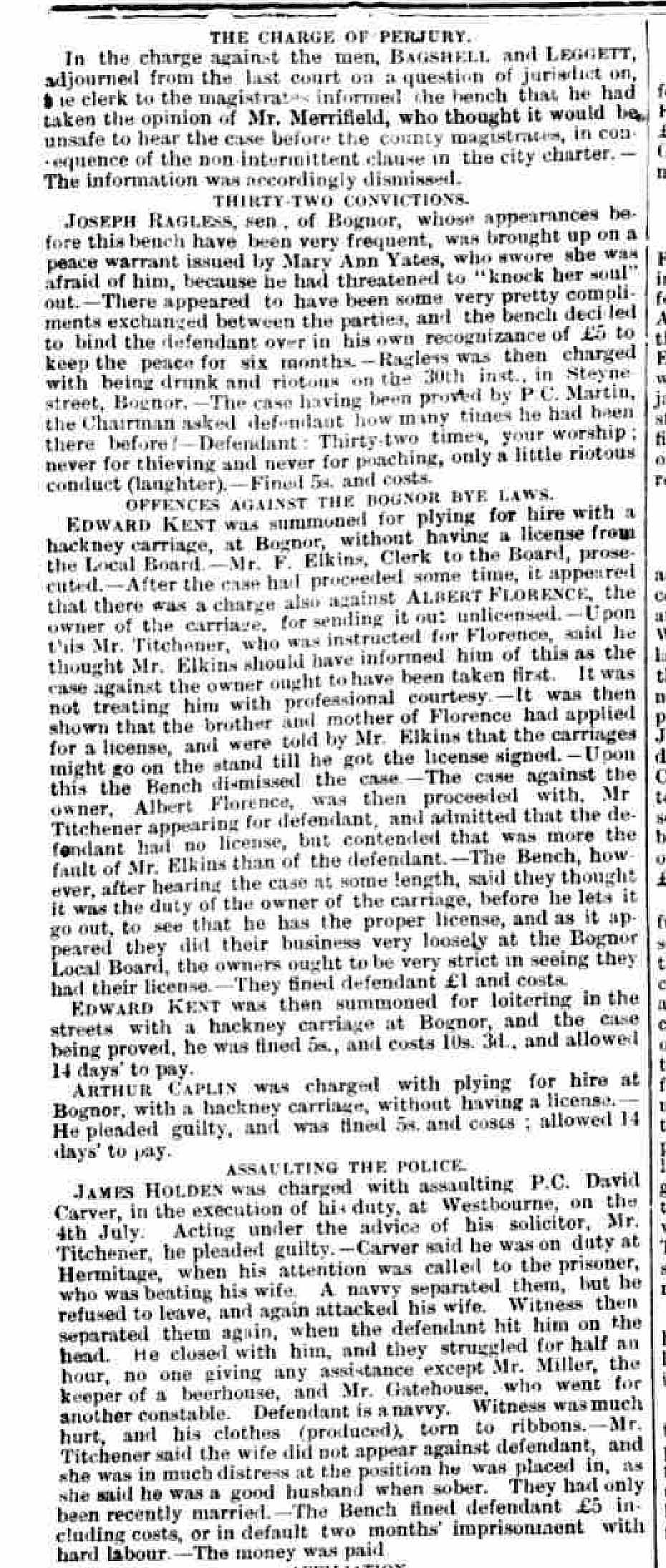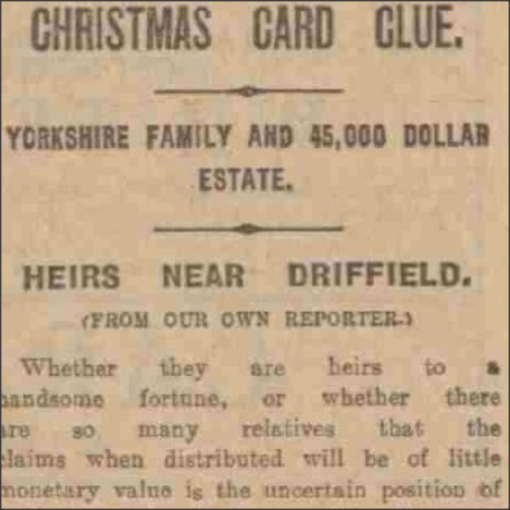
Resolving Victorian murder cases were notorious and haphazard. Detectives and experts were left with little in comparison to available knowledge and technologies today. There was no proof by fingerprinting and it was very difficult to tell the difference between human and mammal blood. Of course there was no DNA. Looking at Victorian murder cases over the last few decades although much evidence presented in court was substantially more flimsy than today, the cleverness of police experts at times never ceases to amaze.
Here is a case in 1895 of Annie Robinson, the woman who poisoned her husband by administering him with mercury (if you are slightly squeamish you are advised that some of this report contains material that you might find distressing).
Annie Robinson (38), it turns out, had constantly lied in court, claiming her father was recently deceased and of course denying that she had administered any poison to her elderly and much older husband of 56. Mr. Robertson it turns out was of “considerable means” and his wife was threatening to leave him unless he made out a will leaving all his property to her. So far I have found no record of his probate or a will:
Charge Of Husband Poisoning
Sensational Huddersfield Case
Trial At Leeds Assizes
At Leeds assizes today Mr. Justice Grantham took his seat on the bench at 10.30. At that time Annie Robinson was in the dock. In the calendar she was described as a married woman, 38 years of age, and she was indicted for having feloniously administered to her husband, Rowland Robinson, by certain metallic poison, with intent to murder him, at Huddersfield. Mr. Banks and Mr. Whittaker Thompson prosecuted. Prisoner had not engaged counsel, but at the request of the judge Mr. Barlow defended her. The accused was allowed to sit during the trial.
The prisoner on being charged pleaded not guilty.
Mr. Banks opened the case. He said the charge was a very serious one, the prisoner being charged with having Attempted To Murder Her Husband by by poisoning, yet there was no wart real difficulty in the case. The facts which the prosecution would label for the jury were so plain that they would cause them a little difficulty in arriving at a verdict. The prisoner and her husband were married on the 7th of January in this year. The prosecutor, who was a spinner, was about 50 VII years of age, and the jury we’ll see how old the prisoner was. The parties lived together in Huddersfield for some months, apparently on pleasant terms. During those months the prisoner went away from home twice. At Easter she left the house for the purpose, and she said, to see her brother married, and again in August, she on this occasion saying she was going to see her father, who was dying. When she returned she said that her father was dead. At the same time She Refused To Cohabit Any More with her husband. Up to then the husband had been a perfectly healthy man. He had never had a day’s illness, except he had suffered from polypus in his ear, which, however, had been removed by the doctor. The prosecutor asked the prisoner the reason that she did not intend to sleep with him, and she said that he was “breaking up,” and was “rotten.” Moreover, she said that the body of her father, who as she alleged, had just died, was quite “clammy,” which meant another death in the family, vix., her husband.
It would, however, be proved in evidence that the statement about the death of the prisoners father was a lie; The Father Was Still Alive.
On Saturday, the 24th of August, the prisoner and her husband went out to tea at the house of an aunt of the latter, named her Bridget Robinson, with whom lived her son, James Robinson. The prisoner and her husband returned home from the aunt’s house being accompanied by James Robinson, and had supper. The prisoner afterwards went out shopping. On that night, after he had been in bed sometime, the prosecutor was awakened by violent pains. He was seized with of violent vomiting and purging, and remained there for about half an hour. His wife did not seem to have gone to him, but she evidently came down and looked out from the passage, for he appeared to have spoken to her, and told her to go in –he would be in presently. This was on August 24, and on the next day, Sunday, He Was Apparently No Better, and he continued to be ill until the Tuesday, when he felt so bad that he said he would have the doctor sent for. Dr. Demetrindi was called in, and examined the patient, whom he had continued to attend a until the present time. From August 27 to September 14 the symptoms seem to have recurred every other day, and during the whole of the time the prisoner was nursing him, nobody else being in the house. The doctor would tell the jury that the symptoms he saw during that time were consistent with poisoning by means of mercury. There were three ways in which mercury might be administered as a poison –one in the form of calomel, one in the form of corrosive sublimate, and the other in the form of white precipitate. The prosecution submitted that the form in which the mercury had been conveyed into the man’s system was By Means Of White Precipitate.
During all this time the doctor had tried to obtain samples of the man’s vomit and excreta. The first time he asked for it was on the second or third day he saw Robinson, but this request was not complied with, and after two or three days he asked again. None had been secured for him, but the prisoner promised to grant his request. She again promised to do so. Next day he asked if the promise had been fulfilled, but it had not. He asked again on a subsequent day, when the woman told him she had saved some but it was so offensive that she had to throw it away.
That was her conduct when the doctor was pointing out to her in order to see what was the matter with her husband he must be able to satisfy himself as to what was in the vomit and in the motion. On the 14th of September the doctor thought this had gone on so long that The Man Should Have A Trained Nurse and a trained nurse was got from Miss Jackson’s Nurses’ Home, in Leeds. Kathleen Clumpion was her name, and she took over the charge of Rowland Robinson from the prisoner. The result was a steady improvement straight away, and not until nearly a fortnight did the symptoms return. The first thing done by the nurse was to save one of the man’s motions. He gave that to the doctor the second day she was there. The doctor took it to the Analyst of Huddersfield, and, on analysing it that official found in it a quantity of mercury. That was conclusive that before the nurse arrived on the scene somebody had been administering mercury to him, and was consistent with the signs the doctor said he found during the whole of the time he had been in attendance of poisoning by means of mercury.
(Proceeding)





